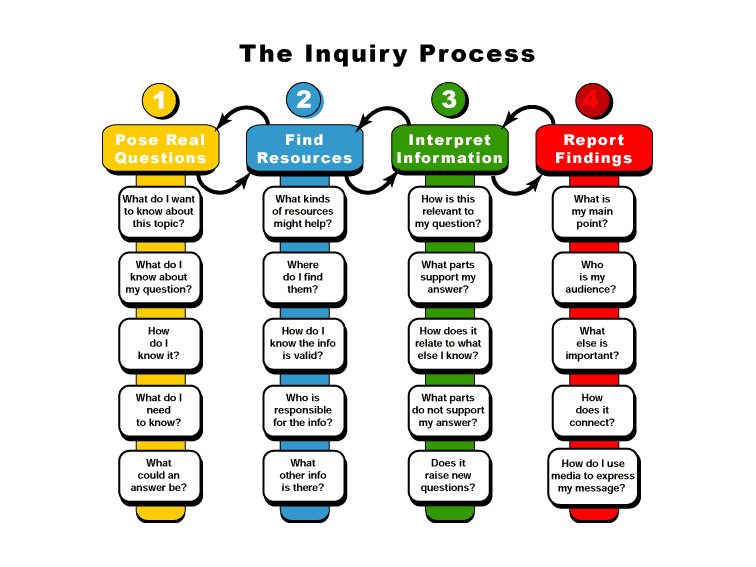Inquiry-Based Learning Questions For Research And General Inquiry
by TeachThought Staff
Recently we took a look at the phases of inquiry-based learning through a framework and even apps that were conducive to inquiry-based learning on the iPad.
What Are The Different Levels Of Inquiry Learning In The Classroom?
In An Inquiry Framework: 5 Levels Of Student Ownership, we also offered five levels of inquiry:
In the first post, we suggested that inquiry-based learning is an “instructional model that centers learning on solving a particular problem or answering a central question.” We also provided some thinking on the ‘stages’ of inquiry, saying that “inquiry-based learning can vary depending on context but generally include Interacting, Clarifying, Questioning, and Designing.”
Inquiry Mode: Close-ended Demonstration
Inquiry Mode: Guided Inquiry
Inquiry Mode: Bounded/Restricted Inquiry
Inquiry Mode: Open-ended Inquiry
Inquiry Mode: Collaboration with Researcher
While there’s so much to each of these ideas–each deserving of an article, course, and even short book of their own–let’s get closer to actual inquiry-based learning questions that students can use in the classroom.
See also A Conversion Chart For Reading Level Measurement Tools
Examples Of Inquiry-Based Learning Questions
During our research for that phase’s framework, we stumbled across the following breakdown of the inquiry process for learning on 21stcenturyhsie.weebly.com (which offers the references that appear below the graphic). Most helpfully, it offers 20 questions that can guide student research at any stage, including:
What do I want to know about this topic? How do I know I know it? What kinds of resources might help? How do I know the info is valid? Does my research raise new questions? And, in a nod to digital and social media, How do I use media to express my message?
These stages have some overlap with self-directed learning. Hopefully, you’ll find the following graphic–and the embedded stages and questions–helpful in your planning, or to distribute to students as they make sense of what could be a new (for them) approach to learning.
Pose Real Questions
What do I want to know about this topic?
What do I know about my question?
How do I know it?
What do I need to know?
What could be an answer?
Find Resources
What kinds of resources might help?
Where do I find them?
How do I know the info is valid?
Who is responsible for this info?
What other info is there?
Interpret Information
How is this relevant to my question?
What parts support my answer?
How does it relate to what else I know?
What parts do not support my answer?
Does it raise new questions?
Report Findings
What is my main point?
Who is my audience?
What else is important?
How does it connect?
How do I use media to express my message?

References
Cross, M. (1996). Teaching Primary Science: empowering children for their world. Melbourne: Longman Australia.
Kuhlthau, C., Maniotes, L., & Caspari, A. (2007). Guided Inquiry: Learning in the 21st Century. London: Libraries Unlimited.